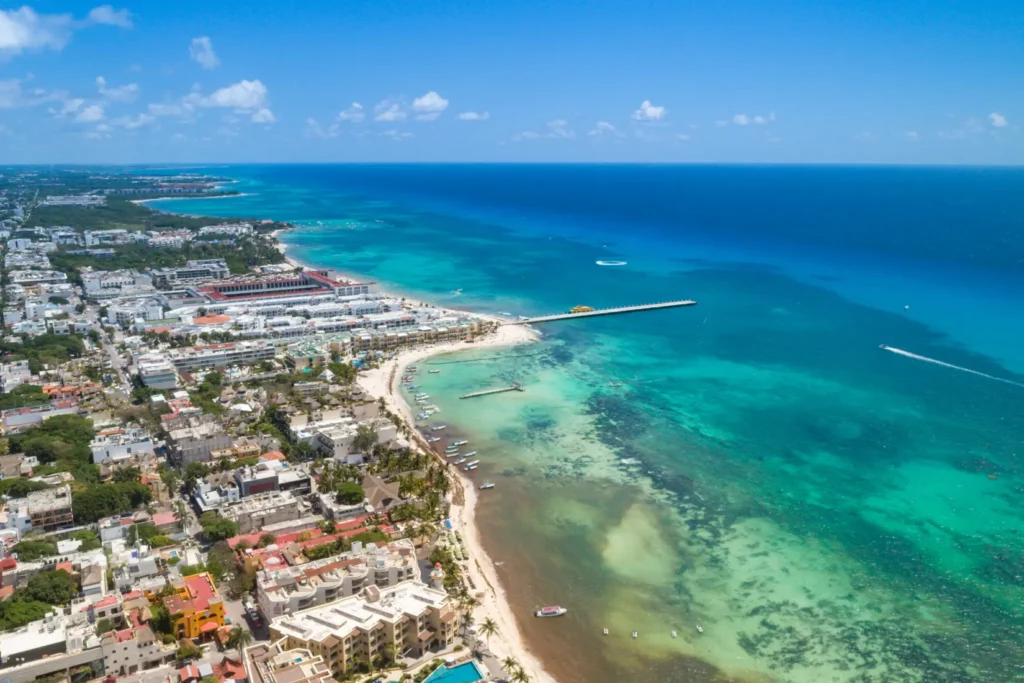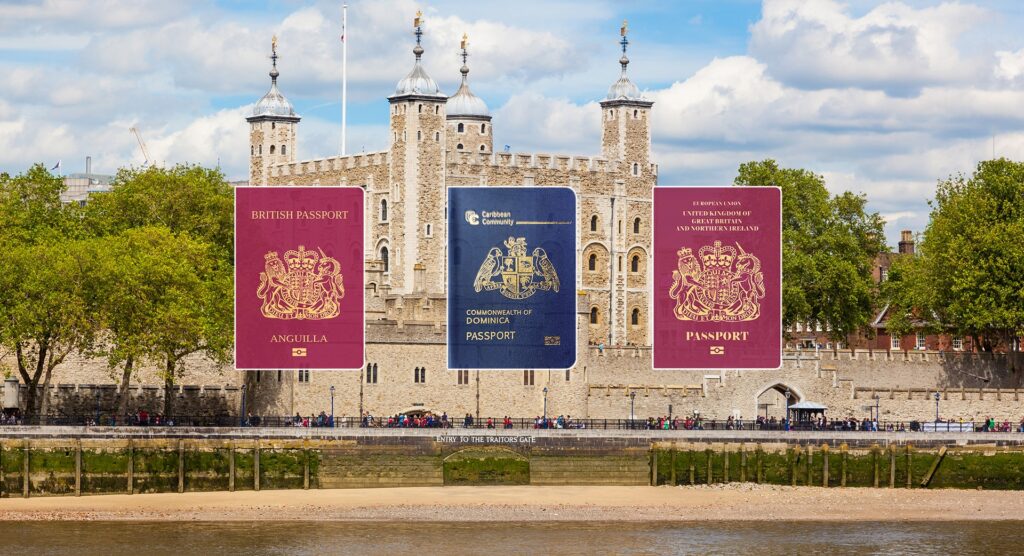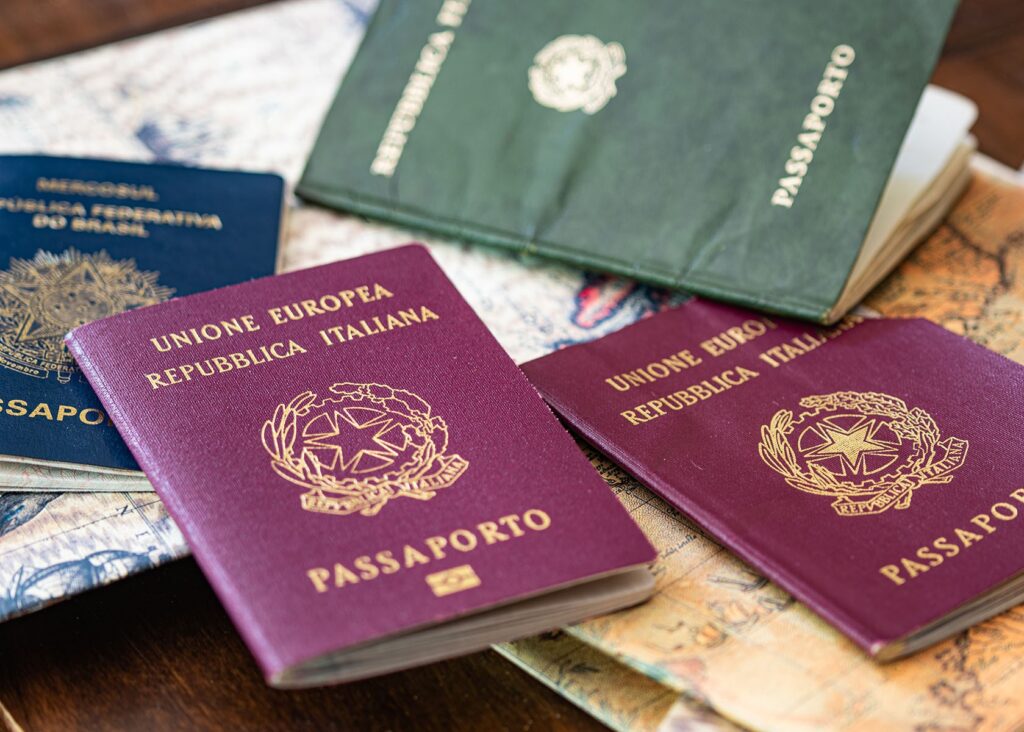Offshore banking might sound like a concept reserved for high-flying business moguls and the super-rich. Still, it’s a financial avenue that could be more accessible and beneficial than you think. Offshore banking involves opening a bank account in a country different from where you reside, offering many opportunities for personal and business finances. Despite its shadowy reputation, linked often to tax evasion and other illicit activities, offshore banking is perfectly legal and offers legitimate advantages, especially if your transactions span borders.
It’s crucial, however, to understand the legalities, including the importance of full disclosure to authorities like the IRS to ensure you’re on the right side of the law. Whether you’re looking to diversify your assets or streamline international business operations, understanding offshore banking could open up a new world of financial strategies.
What is Offshore Banking
A its core, this practice involves opening a bank account in a country different from the one where you reside. This financial practice is not only for the wealthy but also for individuals and businesses seeking to diversify their banking needs across borders. The best offshore banking services offer enhanced financial privacy, potential tax benefits, and easier access to international markets.
Countries known for their offshore banking facilities, such as the Cayman Islands, provide robust financial services under regulatory environments that might be more favourable than your home country’s. These jurisdictions are often labeled as the best countries for offshore banking due to their stable political and economic environments, which add an additional layer of security for your assets.
Understanding the Legal Framework
It’s crucial to understand that offshore banking isn’t synonymous with evading taxes or illegal activities. The legality comes from adherence to international and local laws, where disclosure is pivotal. Properly reporting your accounts and income to authorities, like the IRS if you’re a US citizen, ensures your offshore banking complies with legal standards. This transparency distinguishes legitimate offshore banking from illicit financial dealings.
Benefits for You and Your Business
Offshore banking could be particularly beneficial if you operate internationally. Accessing your funds globally becomes more straightforward, and managing currencies can be more efficient in an offshore account. Furthermore, diversifying your financial portfolio by holding assets in different jurisdictions can be a strategic move against geopolitical risks or currency depreciation in your home country.
Choosing the right banking destination depends on several factors including the financial stability of the jurisdiction, the privacy laws in place, and the quality of banking services offered. Research and professional advice are key in identifying the best banking option that aligns with your personal and business goals.
Remember, the journey to setting up an offshore account should be carefully navigated. There are numerous legitimate reasons and benefits to offshore banking, but proceeding with full legal compliance and transparent financial practices is essential.
Advantages of Offshore Banking

When you’re exploring the realm of international finance, understanding the advantages of offshore banking is crucial. Not only can it offer you unique financial opportunities, but it also provides a level of security and privacy that’s hard to find in conventional banking systems. Here’s a closer look at some of the top benefits of offshore banking that could sway your decision towards opening an account overseas.
Financial Privacy
One of the most appealing aspects of offshore banking is its enhanced financial privacy. Many of the best countries for offshore banking, including the Cayman Islands, are renowned for their strict banking secrecy laws. These jurisdictions ensure that your financial information is kept confidential, far away from prying eyes. Unlike domestic banks where your financial information might be more accessible to government agencies and even private litigants, offshore banks in these jurisdictions provide a stronghold of privacy. Whether you’re a high-net-worth individual looking to maintain your privacy or a business owner wanting to keep your financial dealings discreet, offshore banking provides that added layer of confidentiality you’re seeking.
Asset Protection
Another significant advantage of offshore banking is asset protection. Economic and political instability can threaten your assets in your home country. You can protect your wealth from potential domestic woes by placing your assets in offshore accounts, particularly in jurisdictions known for their stability and strong legal frameworks. This could range from legal judgments against your assets to economic fluctuations that might devalue your currency. Offshore banking acts as a safe haven, ensuring your assets are kept in a secure and stable environment. The Cayman Islands, among other best offshore banking locations, offer robust protection strategies for your assets, making them less accessible to domestic creditors and legal actions.
Tax Benefits
Lastly, one can’t overlook the potential tax benefits of offshore banking. While tax regulations vary significantly from one jurisdiction to another, many individuals and businesses find that holding funds offshore can lead to favorable tax treatment. This doesn’t mean evasion but rather efficient tax planning, which is perfectly legal. Some offshore jurisdictions offer low or no interest, dividends, and inheritance tax rates, which can be particularly advantageous for those looking to legally optimize their tax liabilities. It’s essential, however, to be fully aware of the tax laws in both your home country and the offshore jurisdiction to ensure compliance and make the most out of these benefits.
In sum, offshore banking presents several advantages, including Financial Privacy, Asset Protection, and Tax Benefits. Each benefit plays a crucial role in why individuals and businesses opt for offshore accounts. Whether it’s securing your wealth against unforeseen domestic challenges or leveraging tax efficiencies, choosing the right offshore banking jurisdiction can be a game-changer for your financial strategy. Just remember, the key to successful offshore banking lies in selecting the best offshore banking destination that aligns with your financial goals and adhering to all legal and regulatory requirements.
Disadvantages of Offshore Banking

While offshore banking might seem like an attractive option for asset protection and tax efficiency, it’s crucial to consider the downsides before deciding. Understanding the potential risks and complexities can help you navigate the offshore banking landscape more effectively.
Increased Risk
One significant disadvantage of offshore banking is the Increased Risk associated with such accounts. Unlike domestic banks in countries with robust financial regulations, offshore banks, including those in popular jurisdictions like the Cayman Islands, might not offer the same level of protection if the bank defaults. This lack of protection means you could lose your investment without recourse.
Furthermore, the geopolitical and economic stability of some of the best countries for offshore banking can vary, putting your assets at risk. While locations such as the Cayman Islands are renowned for their stable environments, conducting thorough due diligence is essential, as not all jurisdictions offer the same level of security.
Complexity and Cost of Offshore Banking
Setting up and maintaining an offshore bank account can be complex and expensive. The process often involves navigating unfamiliar legal and regulatory frameworks, which can be daunting. Initial setup costs, including minimum deposit requirements, can be significantly higher than those for domestic accounts. For instance, certain prestigious offshore banking services may require hefty initial investments and maintain high minimum balance requirements.
Additionally, you might encounter higher fees for account maintenance, transactions, and other banking services. These costs can add up, making offshore banking less accessible for individuals without the necessary financial means. Considering these expenses is vital when evaluating the benefits of offshore banking.
Negative Perception and Legal Issues
Offshore banking suffers from a negative perception, often associated with tax evasion, money laundering, and other illicit activities. This stigma can impact your reputation and may lead to increased scrutiny from both tax authorities and the public.
Legal issues also pose a significant concern. The global crackdown on tax evasion has led to stricter regulations and increased transparency requirements for offshore accounts. Failure to comply with these regulations, including accurate reporting of your offshore assets, can result in severe penalties. Tax agencies worldwide are more vigilant than ever, working to ensure that individuals and businesses are not using offshore accounts to circumvent tax obligations.
In navigating the complex world of offshore banking, weighing these disadvantages against the potential benefits is crucial. Proper due diligence, alongside professional advice, can mitigate some of these risks, but it’s essential to approach offshore banking with a clear understanding of the challenges involved.
How to Open an Offshore Bank Account

Opening an offshore bank account can provide several benefits, including financial privacy, asset protection, and tax efficiency. However, navigating the process requires a clear understanding of several critical steps. Here’s your comprehensive guide.
Register an Offshore Company
Initially, you might need to consider setting up an offshore company, especially if you want to manage business-related finances or investments internationally. An offshore company can act as a legal entity for your offshore bank account, which can be particularly advantageous in jurisdictions that offer favourable tax setups. This step is vital for those looking to enhance their investment strategies or entrepreneurs aiming to capitalize on global business opportunities.
Choose the Right Jurisdiction
Selecting the right jurisdiction is paramount when opening an offshore bank account. Best countries for offshore banking often offer political and economic stability, strong privacy laws, and are well-established as financial hubs. Jurisdictions like the Cayman Islands are famous for their financial services and are considered among the best offshore banking locations due to their regulatory environment and commitment to confidentiality.
Research and Select a Bank
Once you’ve identified the most suitable jurisdiction for your needs, the next step entails researching and selecting a bank that aligns with your financial goals and requirements. Look for banks with a solid reputation for providing secure, reliable offshore banking services. Considering factors such as the bank’s history, the range of financial services offered, and customer support quality will help you make an informed decision.
Gather Required Documents
To proceed with opening your offshore bank account, you’ll need to gather the necessary documentation. This typically includes proof of identity (such as a passport), proof of address, and sometimes, proof of income or source of funds. It’s crucial to check with your chosen bank for a specific list of required documents, as requirements can vary significantly between banks and jurisdictions.
Submit Application and Open the Account
With your company registered, jurisdiction selected, and all necessary documents at hand, you’re ready to submit your application to open an offshore bank account. This can often be completed online, although some banks and jurisdictions may require a physical presence or an interview, either in person or over the phone. After your application is reviewed and approved, you’ll receive your account details, and you can start managing your finances through your new offshore bank account.
Embarking on the journey of offshore banking requires thorough preparation and consideration of various factors such as jurisdiction quality, banking stability, and legal compliance. Whether you’re aiming to diversify your investment portfolio or seeking financial privacy, understanding these steps ensures a smoother process in establishing your offshore financial base.
Best Countries to Open Offshore Bank Account

When you’re diving into the world of offshore banking, choosing the right destination is paramount. The best countries for offshore banking combine stability, privacy, and financial flexibility. Let’s explore the top destinations that stand out for their offshore banking services.
Cayman Islands
The Cayman Islands is a leading name in the realm of best offshore banking, renowned for its strong privacy laws and tax neutrality. With over $1.5 trillion in deposits, it’s a hub for international finance. The jurisdiction’s political and economic stability further enhances its appeal. When you opt for offshore banking Cayman Islands-style, you’re accessing a sophisticated financial ecosystem, boasting over 281 banks, including 40 of the world’s top 50. The absence of direct taxation on corporations and individuals is a significant draw, making it a top choice for those seeking to optimize financial management and protect their assets.
The Bahamas
The Bahamas offer a blend of beautiful landscapes and attractive offshore banking opportunities. Here, privacy and security are paramount, with laws designed to protect the identities of account holders. The Bahamas’ commitment to compliance with international regulatory standards ensures a trustworthy environment for offshore banking. You’ll find a spectrum of services tailored to international investors and individuals looking for privacy, from savings to investment accounts.
UAE
The United Arab Emirates (UAE), particularly Dubai, has emerged as an attractive destination for offshore banking, offering a unique combination of zero taxation and robust confidentiality. The UAE’s modern banking infrastructure and favorable regulatory environment make it ideal for entrepreneurs and businesses seeking to expand their global footprint. Additionally, the UAE does not exchange financial information under the Common Reporting Standard (CRS), providing an added layer of privacy.
Malaysia
Malaysia, with its Labuan International Business and Financial Centre, presents a compelling option for offshore banking in Asia. Offering both conventional and Islamic banking solutions, Malaysia caters to a diverse global clientele. The country’s strategic location, political stability, and competitive tax rates contribute to its status as a rising star in the offshore banking sector. It’s a perfect match if you’re looking for an Asian base with access to dynamic markets and a friendly business environment.
Panama
With a long history of financial services, Panama remains a stalwart among the best countries for offshore banking. Its attractive feature is the stringent privacy laws that rival even those of Switzerland. Panama operates in the US dollar, providing currency stability and ease of transactions for international account holders. The country’s sophisticated banking sector, coupled with the absence of exchange controls, makes it a prime choice for individuals and corporations aiming for financial flexibility and asset protection.
St. Lucia
St. Lucia is an emerging player in the offshore banking industry, offering competitively priced banking options with strong privacy protections. As a jurisdiction, St. Lucia is committed to regulatory compliance while ensuring the confidentiality of banking clients. Its growing reputation is built on a foundation of reliable banking services, political stability, and an appealing tax regime. St. Lucia is especially attractive to newcomers in offshore banking, offering a straightforward setup process and a welcoming environment for international investors.
As you navigate your options, remember that selecting the right destination is critical to achieving your financial goals. Consider factors such as the legal framework, tax benefits, and the overall stability of the country to ensure that your assets are protected and managed according to your expectations.
Managing an Offshore Bank Account

When you decide to venture into the world of offshore banking, it’s essential to stay proactive about managing your new account. Whether your goal is to benefit from the best options available or to leverage the advantages of offshore banking in the Cayman Islands style, proper management ensures your finances are both secure and beneficial in the long run. Let’s dive into some key practices you should adopt.
Regular Monitoring
Keeping a close eye on your offshore account is paramount. With the convenience of digital banking platforms, you can easily check your balances, monitor transactions, and review any charges or fees from anywhere in the world. Regular monitoring helps you stay informed about your financial status and enables you to catch any unauthorized transactions early. It’s a good practice to set up alerts for large transactions or low balances, so you’re always in the loop.
In the realm of offshore banking, where transactions might occur across various currencies, being vigilant about exchange rates and conversion fees is crucial. This ensures that you’re making the most out of your international transfers and savings.
Understanding Tax Obligations
A common misconception is that the best countries for offshore banking offer a way to evade tax responsibilities. While offshore accounts can provide tax efficiencies, they do not exempt you from understanding and fulfilling your tax obligations. It’s vital to familiarize yourself with the tax laws of both your home country and the country where your bank is located.
For U.S. citizens, for example, the IRS requires the disclosure of overseas accounts if the total balance exceeds $10,000 at any point within the calendar year. Failure to comply can result in hefty penalties. If you’re unsure about the tax treaty benefits or how to report your offshore income, consulting with a tax advisor is a wise step. They can guide you through the complexities of international tax law, ensuring you reap the benefits of offshore banking without stepping into legal grey areas.
Avoiding Illegal Activities
The allure of offshore banking must never lead you down a path of illegal activities. While the sector has faced criticism in the past, largely due to incidents like the Panama Papers leak, the industry has taken significant strides towards transparency and regulatory compliance. It’s crucial that you use your offshore account for legitimate financing, investments, or savings in multiple currencies.
Engaging in activities such as money laundering, tax evasion, or hiding illegal funds not only jeopardizes your financial assets but also poses the risk of criminal prosecution. Always ensure that your use of offshore banking complies with international laws and your home country’s regulations. Transparent and legal use of your offshore account is key to safeguarding your wealth and reputation in the global financial community.
By adopting these practices of regular monitoring, understanding your tax obligations, and avoiding illegal activities, you can ensure that your offshore banking experience is both beneficial and compliant. Whether you’re attracted to the Cayman Islands’ competitive tax rates or the robust privacy laws in other top jurisdictions, managing your offshore bank account with diligence is the cornerstone of achieving financial success and security on an international scale.
Conclusion

Embarking on the journey of finding the perfect bank to set up accounts offshore can be a strategic move to safeguard and grow your wealth. By carefully selecting the right jurisdiction and bank, you’re not just opening an account but stepping into a realm of financial stability and privacy. Remember the importance of diligence in managing your offshore account. Regular monitoring, being aware of exchange rates, and adhering to tax laws are crucial steps to ensure your offshore banking experience is both beneficial and compliant. With the right approach and ongoing vigilance, you can navigate the complexities of offshore banking with confidence. It’s about making informed decisions that align with your financial goals and legal obligations, ensuring a prosperous and secure financial future.
Frequently Asked Questions (FAQ)
1. What do offshore banking and offshore accounts have a bad reputation?
Offshore banking often faces criticism due to its association with tax evasion and money laundering. This perception leads to higher scrutiny by tax agencies and regulatory authorities, who impose stringent regulations on offshore banks to monitor their activities and ensure compliance with the law.
2. Is offshore banking legal in Canada?
Yes, having an offshore account or business is legal in Canada as long as all transactions and assets are properly declared and reported to the Canadian tax authorities. It is the non-disclosure of these accounts that is illegal, not the possession of them.
3. How do I withdraw money from my offshore account?
Withdrawing money from your offshore account can typically be done via ATM withdrawals, allowing you to access your funds from anywhere. However, it’s important to check with your bank regarding withdrawal fees to avoid high costs. To minimize these fees, consider making fewer but larger withdrawals.
4. What is the point of an offshore bank account?
An offshore account is held in a country where the account holder does not reside. These accounts provide various financial services, including the ability to make and receive international payments, hold funds, and set up savings and investment accounts in multiple currencies, offering flexibility and potential tax benefits.
5. What is the best offshore banking?
Hong Kong ranks as one of the top offshore banking destinations due to its prestigious status as a global financial centre. The region offers a favourable tax system for international businesses, with income earned outside of Hong Kong being exempt from local taxes, making it an attractive location for offshore banking activities.
Learn More
Offshore Freedom™ is a boutique coaching and consulting firm that helps investors and entrepreneurs live and invest internationally. We help our clients grow their businesses, pay less taxes, buy more real estate, and take advantage of global residency and citizenship by investment programs worldwide.
Schedule a 1 on 1 consultation with Dan Merriam, and let us help you design the life of your dreams and live the Offshore Freedom™ lifestyle. Ask questions and get answers about international real estate, tax planning, second residencies, citizenship by investment, lifestyle design and more.
This article is for informational purposes only; it should not be considered financial, tax planning, investment or legal advice. Consult a certified financial or investment professional in your jurisdiction of interest before making any major financial or investment decisions.
Writer in Tax Reduction, International Tax Planning, Travel, Citizenship by Investment, The Caribbean, Banking in Cayman Islands, Offshore Bank Account, Second Residence, Real Estate Investing, Asset Management, Lifestyle Planning, Countries with the Lowest Taxes, Company Formation, Asset Protection, Technology, Entrepreneurship


















